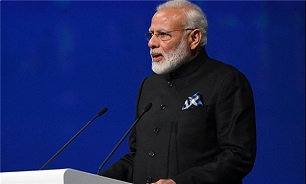Pakistan Denies Indian PM Permission to Use Its Airspace for Saudi Arabia Journey
 The decision has been conveyed to the Indian High Commissionn in Islamabad, Pakistani government officials said on Sunday, Sputnik reported.
The decision has been conveyed to the Indian High Commissionn in Islamabad, Pakistani government officials said on Sunday, Sputnik reported.
Meanwhile, India has expressed regret over Pakistan’s decision to “again deny overflight clearance for the VIP special flight which is otherwise granted routinely by any normal country”, according to government sources.
“Separately, we have taken up the matter of such denial with the relevant international civil aviation body. Pakistan should reflect upon its decision to deviate from well-established international practice, as well as reconsider its old habit of misrepresenting the reasons for taking unilateral action,” the sources added.
This comes after Islamabad rejected an official request from India last month to allow Modi’s flight to cross Pakistani airspace to travel to the US for UN General Assembly session on 20 September and also for his return flight on 28 September.
“Considering the situation in Kashmir and the kind of barbarism and atrocities carried out by India in Kashmir, Pakistan has rejected the request,” Pakistani Foreign Minister Shah Mehmood Qureshi stated.
Earlier that month, Islamabad rejected a request by India to allow its President Ram Nath Kovind to use Pakistani airspace during his flight to Iceland “in view of India’s behaviour”.
The developments come against the backdrop of rising tensions between India and Pakistan over the disputed region of Jammu and Kashmir.
On 5 August, the Indian government announced that it was revoking the special status of the region as determined by Article 370 of the constitution.
Under the law, the state had an autonomous constitution and could make its own decisions, except on defence, foreign affairs, and communications. The Indian government’s new initiative stipulates that Jammu and Kashmir will be divided into two union territories that will be under New Delhi's control.
Pakistan reacted angrily to what it described as an “illegal” move, promising to protect Kashmiris. Islamabad expelled the Indian ambassador, halted bilateral trade and promised to raise the issue with the International Court of Justice.
India and Pakistan have contested the Kashmir region — the Southern part of which lies in India's Jammu and Kashmir state — since the end of British rule in 1947. Despite a ceasefire reached in 2003 after several armed conflicts, instability in the region has showed no signs of abating and has led to the emergence of various extremist groups.
Message end/
